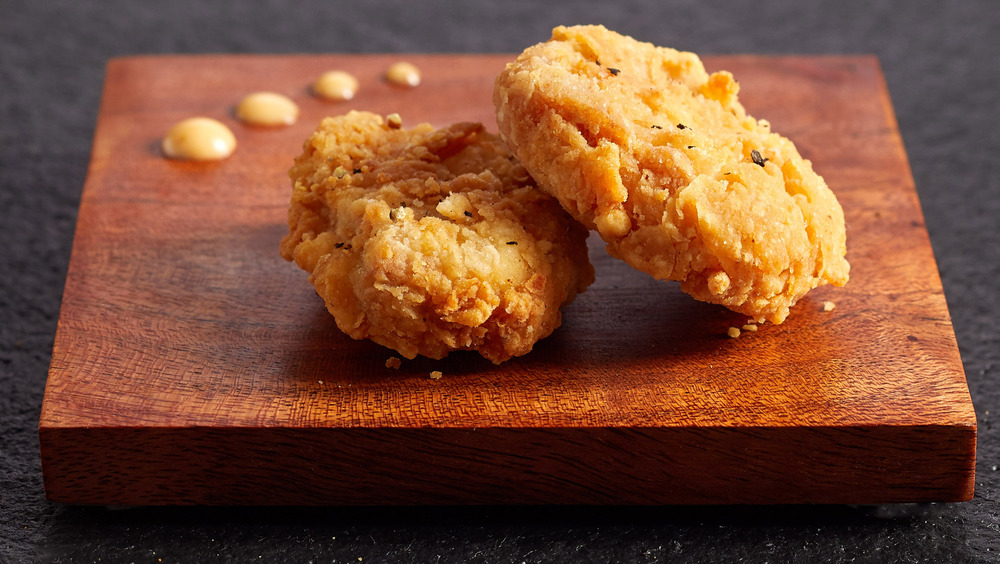The World's First Lab-Grown Chicken Has Gotten The Green Light For Sale
Chickens everywhere may soon be clucking a different tune. The Guardian reported that the Singapore Food Agency has approved the sale of U.S. company Eat Just's cultured chicken product, "chicken bites." This landmark event marks the first time a regulatory authority has approved the sale of cultured meat produced in bioreactors. (Bioreactors are just vessels that carry out biological reactions, according to Science Direct. You're welcome.) The approval could potentially lead to a reduction in the environmental impact of livestock production and help usher in a new era offering cleaner meat, void of drugs and cruelty.
According to The Guardian, the cells for Eat Just's chicken bites came from a cell bank, were grown in a bioreactor, and then combined with plant-based ingredients. The "growth medium" for the Singapore version includes fetal bovine serum, but a plant-based serum is scheduled to replace the cow blood in the next production line.
What comes next for the cultured meat?
Josh Tetrick, co-founder and CEO of San Francisco-based Eat Just, believes the approval in Singapore is just the beginning. "I'm sure that our regulatory approval for cultured meat will be the first of many in Singapore and in countries around the globe," he said (via Business Wire). But, don't go running to your local grocery store looking for cultured meat just yet. According to the New York Post, Eat Just plans to sell the man-made chicken product to restaurants before selling it directly to consumers.
Much like plant-based meats that are currently available, the cell-cultured chicken product would initially cost more than your slaughterhouse-variety until production is scaled up and price is driven down. Before that can happen, there's the obvious question of whether consumers will be into it. According to the Guardian, Tetrick is hopeful, "Is it different? For sure. Our hope is through transparent communication with consumers, what this is and how it compares to conventional meat, we're able to win. But it's not a guarantee." There's no sure winner in the game of chicken, but if there's one thing Tetrick has going for him, it's optimism: "My hope is this leads to a world in the next handful of years where the majority of meat doesn't require killing a single animal or tearing down a single tree." Either way, we're pretty sure he'll still be able to scratch out a living.

